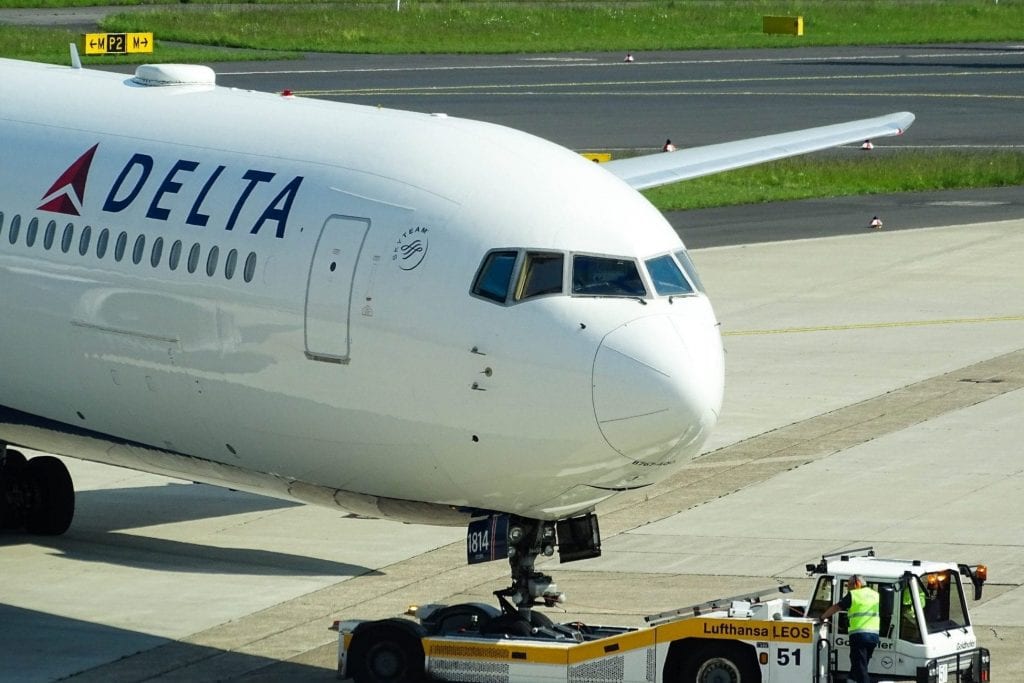Delta Projects Summer Surge Will Stick Around to Deliver Profits This Fall

Skift Take
Domestic travelers are returning to the skies at a pace that even a seasoned executive like Delta Air Lines CEO Ed Bastian said was surprising, so much so that the airline, which lost money in the second quarter, expects to return to profits in the second half of the year.
The pace of the domestic recovery is a welcome change but one that required Delta to step up its hiring. "It's taken us a little bit of time to catch our breath," Bastian said. The carrier expects to hire about 4,000 people from now to the end of this year, many of whom are replacing employees who took voluntary separation or early retirement during the depth of the pandemic last year.
Unlike some of its competitors, Delta has not been plagued by debilitating pilot and cabin crew shortages. But its reservations and ticketing operations staffing has come up short, with reports of six-hour wait times on customer-service calls. Part of this Bastian attributed to passengers having more questions about traveling during the pandemic and changing travel plans, thanks to more flexible ticket-changing policies. Part, though, lies with staffing, and Delta says half of the 4,000 people it plans to hire will be in customer service.
In the short term, the airline has tapped retirees to step in and help with the call volume, which has outstripped anything seen in 2019, and is stepping up its training programs to ensure it is staffed up to handle the number of calls. Delta expects wait times to return to normal by September as employees are fully trained and in place, Bastian said.
Join Us at the Skift Destination and Sustainability Summit on July 21
A tale of two recoveries
The strength of the domestic leisure travel recovery this summer is remarkable. Delta reports that demand is back to 90 percent of summer 2019. The carrier returned to profits for the first time since the pandemic began in June and expects to be "more sustainably profitable" in the second half, Bastian said. Delta's hubs on the two coasts — Boston, New York, Seattle, and Los Angeles — as business travel collapsed and due to stricter Covid-19 restrictions in those regions. That has begun to reverse, auguring well for the second half, the carrier said.
The picture is different for Delta's international network. Demand also is strong to short-haul Latin American markets, and has even exceeded 2019 levels for Mexican leisure destinations. Long-haul markets in Latin America still are behind as countries in South America grapple with new outbreaks of the disease and vaccination roll outs remain slow.
International demand is growing across the Atlantic, with load factors — an industry metric to describe how full an aircraft is — returning to historical norms in the 80 percent range. Europeans still are barred from visiting the U.S., so the bulk of the traffic across the Atlantic originates in the U.S. Because of this, the carrier has shifted its network to focus on European leisure destinations popular with U.S. tourists; Delta this month launched its first New York-Dubrovnik, Croatia flights, for example. Bastian expects transatlantic travel to grow even more rapidly when the U.S. government lifts restrictions on inbound European travel, but he offered no timeline for when that might occur.
Flights across the Pacific, however, are not faring as well, due to a rise in infections in many Asian countries and continuing stringent travel restrictions. Delta does not expect the Pacific network to recover until the end of next year or early 2023.
Business travel, at least in the U.S. and to Mexico, is recovering more quickly than expected. Delta recently surveyed its largest corporate clients on their travel plans. A little more than one-third said they expect to return to pre-Covid levels of travel by 2022. Another 21 percent expected their travel to return to those levels by 2023. Five percent of Delta's corporate clients said they intend never to return to pre-Covid travel levels, and 38 percent said it is too soon to say when they intend to restore their travel budgets. The strongest business-travel segment remains small- and medium-sized enterprises, a trend that started last year.
Delta believes that business travel will rebound in earnest this autumn, after schools reopen and when companies recall workers to their offices. "The surge is coming," Bastian said. "There is enormous pent-up energy and demand for [business] travel."
And now, reality
Despite the confidence Delta's management projected, the reality is the carrier lost $881 million in the second quarter, a stunning reversal from the $2 billion profit it reported in the second quarter of 2019. The carrier did report a profit in June, but that included more than $1.5 billion in government payroll support during the quarter.
Bastian acknowledged that the federal government's support has helped buoy the company during the pandemic, but said he is confident the carrier will be profitable in the second half even after the payroll support program expires on Sept. 30. "One can debate the length of the federal support," he said. "It was critical for keeping our industry afloat and keeping our employees employed and being in the position for a recovery."
Another note of reality was that Delta's second-quarter revenue of $6.3 billion was half of what the carrier earned in 2019. The airline flew 39 percent fewer seats in the second quarter than it did that year.
To that last point, Delta said it still is maintaining the flexibility to adjust capacity up or down. The carrier this week announced it is adding 29 used Boeing 737-900ERs and seven Airbus A350s to its fleet, which will it allow it to increase its systemwide capacity by 7 percent next year. But if it needs more seats, it can pull aircraft out of mothballs to add lift, and by the same token, can retire parts of its Boeing 717 and 767 fleets to reduce capacity.
Asked if Delta will jump on the electric aircraft bandwagon, as American and United have done with their orders for eVTOLs, or air taxis, Bastian said not yet. "I think a lot of the plans we've seen are a bit premature, candidly," he said.
Register Now for the Skift Destination and Sustainability Summit on July 21




